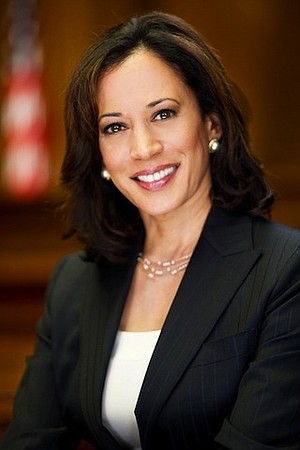4/9/2018

Analysis by Gregory Krieg, CNN
(CNN) -- On consecutive nights last week, in two cities more than 2,000 miles apart, a pair of the Democratic Party's best bets to oust President Donald Trump in 2020 created headlines that could stalk them for the next two years.
To call their comments gaffes or blunders misses the point. Both spoke candidly, delivering messages true to their respective politics. But with a feisty and crowded presidential primary already beginning to take shape, potential candidates, especially the would-be front-runners, are coming under heightened early scrutiny. When weaknesses -- real or perceived -- show up, people notice.
First to the plate was independent Sen. Bernie Sanders of Vermont, who traveled south to Jackson, Mississippi, to mark the 50th anniversary of the death of Martin Luther King Jr.
On Wednesday night, Sanders sat across from Chokwe Antar Lumumba, the 35-year-old African-American mayor and ally who has pledged to make Jackson the "most radical city on the planet," for a discussion about King's legacy and the persistence of economic injustice in American life.
Asked by an audience member what he was doing to keep his supporters engaged in the cause and pushing for a remake of the Democratic Party, Sanders criticized the party's "business model," calling it a "failure."
Then he turned down a more fraught path.
"People sometimes don't see that, because there was a charismatic individual named Barack Obama who won the presidency in 2008 and 2012," Sanders said. "(Obama) was obviously an extraordinary candidate, brilliant guy. But behind that reality, over the last 10 years, Democrats have lost about 1,000 seats in state legislatures all across this country."
Sanders' case here is a familiar one. He wants Democrats to "show up" everywhere, and he blames the party's long stretch of losses at every level of government on an institutional resistance to engaging voters in traditionally red states and districts.
But his mention of Obama -- at that time, in that place -- caused anger and frustration in some already skeptical quarters of the Democratic base, particularly among those who argue Sanders' insistence on framing inequality as a chiefly economic matter, with racial concerns existing downstream from that core divide, effectively downplays the fight for racial justice.
Since his emergence as a national figure, Sanders has taken strides to broaden both his appeal and the parameters of his political analysis. But the question lingers. As BuzzFeed put it in an in-depth examination of the backlash to his remarks in Jackson, has Sanders, now three years out from the beginning of his presidential bid, learned how to speak to black voters?
A night after Sanders came in wide of the mark, his Senate colleague from California, Kamala Harris, was back in her home state for a town hall event in Sacramento.
Like Sanders, Harris is among the early favorites -- if she decides to run -- for the Democratic nomination. A recent CNN poll, conducted by SSRS in late March, placed her in a league with Senate colleagues Kirsten Gillibrand of New York and Cory Booker of New Jersey, a couple of ticks down from better-known figures like former Vice President Joe Biden, Sen. Elizabeth Warren of Massachusetts and Sanders.
On Thursday, Harris was taking audience questions when a man stepped to the mic and zeroed in on her fundraising methods.
"If a corporation or a corporate lobbyist wants to give you money for a campaign," he asked, "will you tell them, 'Thanks, but no thanks'?"
"Well, it depends," Harris replied. "It depends."
The questioner, his arms crossed at the waist, declared this the "wrong answer."
"Well, that's not the answer you want to hear," Harris said. "It doesn't make it wrong."
She continued, acknowledging the legitimate concerns, then explaining her philosophy.
"I appreciate the reason that you're asking it. I do appreciate that," Harris said. "And that's why we have rules that require that any donation that anyone receives needs to be disclosed. So that you can do an assessment, and the voters can do an assessment, and look at where the contributions come from and make your decisions about whether those contributions have influenced the way that people act and the way that people vote."
Whether Democratic voters, in 2018 and over the next couple of years, are willing to embrace that logic remains to be seen.
Enough of Harris' colleagues clearly expect they won't. On February 13, both Gillibrand and Booker (her first, then him a few hours later) resolved to reject corporate PAC contributions. Gillibrand cited "the corrosive effect of money in politics," while Booker called for the "reform" of a "broken" campaign finance system. (Both joined a group of liberal senators headlined by Sanders and Warren in making their pledges.)
Harris, like Biden, doesn't seem likely to make a similar promise. But on a presidential debate stage, surrounded by mostly like-minded candidates, her refusal to forswear corporate donations can and will be used against her, especially by the expected glut of more aggressively progressive hopefuls.
Republicans know it, too. The conservative America Rising PAC quickly blasted out video and a transcript of the exchange and Harris' subsequent remarks, which then appeared across GOP-friendly media on Friday morning and are beginning to pop up in the Twitter feeds of already skeptical progressives.
Democrats have mostly held off amplifying the existing criticism of Sanders and Harris. But the détente that's colored most of the 2018 midterm cycle doesn't have long to run. For the class of 2020, the next seven months will offer plenty of opportunities to road-test their messages.
For the junior senators from Vermont and California, respectively, this past week wasn't quite a wreck. Rather, it was an abrupt reminder that there is still plenty of fine-tuning to be done.
